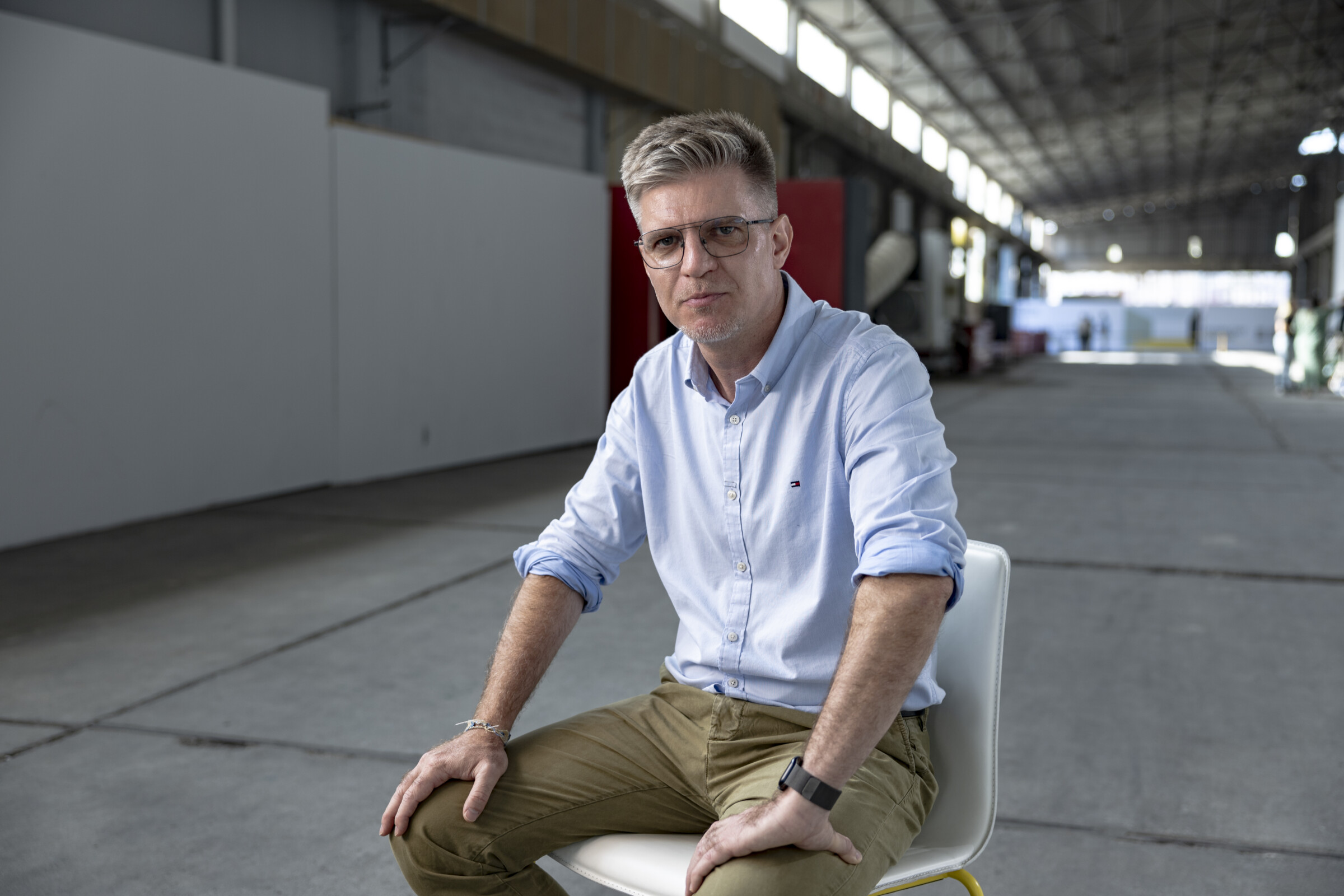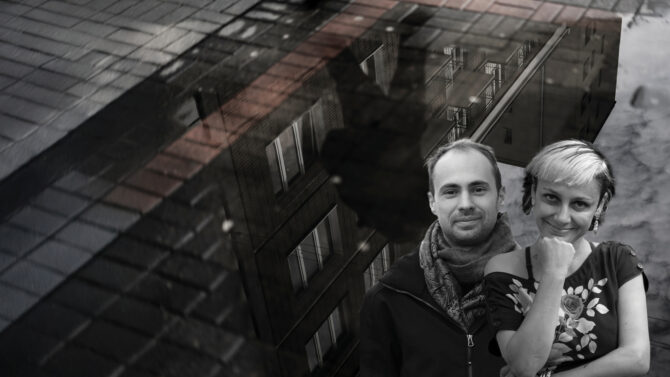In the midst of the 2024 International Journalism Forum, iMEdD interviews Paul Radu, Co-Founder and Co-Executive Director of the Organized Crime and Corruption Reporting Project (ΟCCRP), on exposing cross-border organized crime with big data, money laundering and the need to share investigative tools with the public, while still upholding the core values of journalism.
Covering Gaza and the challenge of access

When reporting on war crimes in dangerous and inaccessible areas like Gaza journalists face immense challenges. During iMEdD’s International Journalism Forum, Guardian’s Manisha Ganguly and Al Jazeera English’s Gaza correspondent Youmna El Sayed discuss the difficulties of uncovering the truth in war zones, whether on the ground or from afar. Excerpts for Youtube shorts were selected by Ionian University journalism student Dimitris Remoundos, as part of the Forum’s pop-up newsroom.
“Organized crime started globalizing its business about 50 years ago. Way before investigative reporters cooperated across borders. We’ve only just started”, said to iMEdD Paul Radu, Romanian investigative reporter, as well as Co-Founder and Head of Innovation at the Organized Crime and Corruption Reporting Project (OCCRP), which was founded in 2007.
As Radu puts it, the considerable headstart of organized crime has forced journalists to be more creative with less resources. The Investigative dashboard (ID), a research desk that provides databases for tracing people, companies and assets, as well as the Visual Investigative Scenarios (VIS) software, a tool that brings the cinematic red-thread, evidence board into life, with the capacity of classifying and storing large amounts of data, are just some tools that Radu and his team developed. “We’re kind of at an inflection point right now where the methods of investigative reporting can destroy systems that were built over the past 50 years”, he said.
“Follow-the-money” is an area where such tools can definitely come in handy. In his extensive research, Radu digs into the so-called “laundromats”, channels facilitating the flow of large amounts of money across international borders, through multiple offshore companies or shared accounts between different people, which makes the process smoother and less costly. However, the increasing popularity of cryptocurrency and blockchain platforms, gives rise to the question of whether such technologies make money laundering easier. To this, Radu gave a simple answer: “It really doesn’t matter”. “Whether it’s cryptocurrency or fiat currency, as an investigative reporter, you always have to investigate across blockchains, across banks, across hawala systems. There are many ways in which money laundering is conducted by criminal organizations”. In the report “Follow the Money — A Digital Guide to Tracking Corruption”, Radu explains that regardless of whether illegitimate money is physical or digital, it will always become tangible in order to re-enter the global markets legitimately, either as real estate, a bond, a piece of land or other assets. The key is to be able to connect the dots and follow the supply chains.
To achieve this, further tools are necessary. Radu described how the OCCRP has successfully used machine learning in order to develop an Aleph system that can process large amounts of data and by extent help develop predictive models of cross-border organized crime based on manual pattern identification. “It does not necessarily mean that we’ll know for sure what type of organized crime, or which is the next move of organized crime, but we’ll have an array of options of where to investigate and how to investigate. Data systems will always pinpoint to the places where we should put more effort in”, said Radu.

“How to go undercover” with independent journalist Elena Ledda and investigative reporter Nikolai Atefie

Kabir Jugram, journalism student at the University of the Witwatersrand met with independent journalist Elena Ledda and investigative reporter Nikolai Atefie during the 2024 iMEdD International Journalism Forum in Athens and discussed the challenges of reporting undercover for the Forum’s pop-up newsroom.
In any case, tools don’t have to be filled with technical jargon or be overly complicated in order to appeal to investigative reporters. Radu mentioned OCCRP’s “Floodlight” project, which is now at the second year of its development, and basically attempts to package investigative reporting into fiction film and video-gaming. This concept is meant to allow young professionals to be educated, pick up key tools and understand how criminality works, in a fun and accessible way.
Nevertheless, some might say that, in the name of this accessibility, increasingly commercial formats, such as true crime documentaries (among them Netflix’s successful “Dirty Money” series), and internet communities solving crimes through open-source intelligence and social media, can blur the lines between investigative journalists and citizens. For Radu, this does not pose a real threat to the integrity of the profession. “If you look around the world, there are not more than 10,000 investigative reporters”, he said, stressing that journalists will have to share key blueprints, roadmaps, tools and data with the public to amplify the impact of their work, while at the same time upholding the ethics and standards of investigative reporting, editing, and fact-checking processes. Regardless, the process of learning and knowledge-sharing, comes with unavoidable risk. Citizens cannot just become investigative reporters overnight, as they need to be aware of the dangers that lie in picking up the tools and data necessary to expose organized crime. “It’s important to organize a movement of citizens who are aware of the risk, but who are also willing to take some of that risk in the interest of the greater public good”, concluded Radu.
It’s really about the dialogue, the dialogue across borders, to be able to go bigger and more global against the corrupt and the criminal, who have already globalized for a very long time.
Paul Radu, Co-Founder and Head of Innovation at the Organized Crime and Corruption Reporting Project (OCCRP)
Ultimately, when asked what advice he would give to an investigative journalist, who is just starting in the field of organized crime, Radu responded laconically: “To read”. He explained that an investigative reporter will dab into a little bit of everything, be it science, math, data, programming; so, it’s important to read and be inspired by what other investigative reporters have published before them. And this includes going outside investigative reporting, delving into other fields, talking with artists, scientists, travelling and understanding cultural differences. “It’s really about the dialogue, the dialogue across borders, to be able to go bigger and more global against the corrupt and the criminal, who have already globalized for a very long time”, said Radu at the end of our discussion.